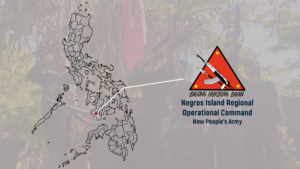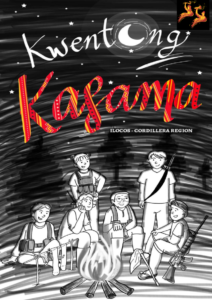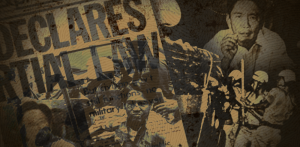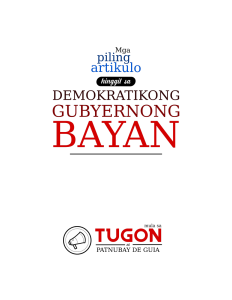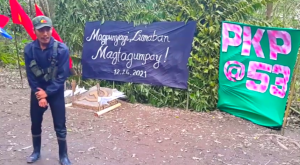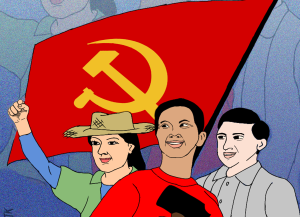To be gay in the NPA
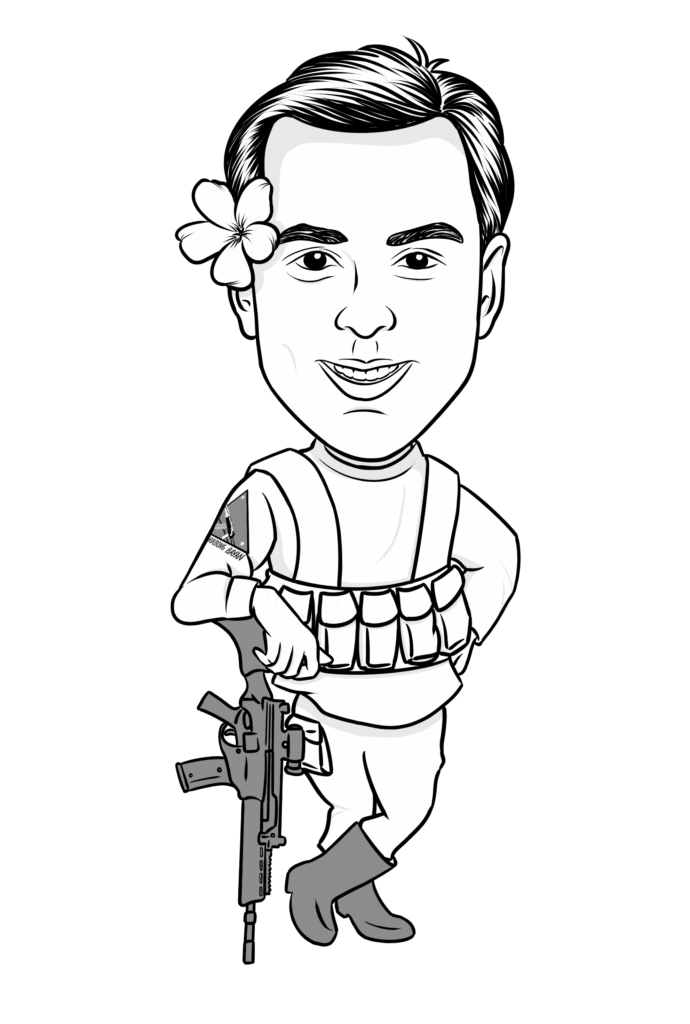
“When I was young, my father always wanted me to enlist in the military hoping to get rid of the bayot in me. Now that I’m grown-up—still gay as ever— he still got his wish. Only, I became a soldier to a different, better army. I’m a Red fighter in the NPA.”
Ka Oliver is one of the many gay and lesbian comrades who embraced the revolutionary armed struggle in the countryside. He likes to joke when he recalls his childhood and struggles of growing up homosexual in a conservative family. But when he explains what he stands for, he is serious and determined.
“The only way the LGBTQ community can find liberation from gender oppression is to topple down class oppression.” For him, the Filipino LGBTQ struggle should encompass the struggle to dismantle the semi-colonial and semi-feudal Philippine society that breeds and perpetuates oppression, discrimination, and fascist persecution not only toward the LGBTQ community but the entire oppressed class.
Before joining the NPA, Oliver’s notion of “gay pride” was heavily influenced by bourgeois and post-modernist ideas centered on individualism and detached from social realities of class struggle. Then, his understanding was limited to pride and self-acceptance devoid of the material conditions and structures that deprive people—gay or not—of their democratic rights. “How can we have ‘pride’ when we are deprived of education, when we are exploited, when we cannot feed our families, or when we are being driven away from our land and our only means of living?”
Ka Oliver avers that being a “woke” gay means firmly grasping the universal truths of the national democratic struggle beyond gender identity politics. “We should forge unity with other classes and sectors against a common enemy. Gay or not, we are all victims of imperialism, feudalism and bureaucrat capitalism,” he said. “I am empowered every day knowing that by fighting alongside peasants, Lumad, and workers, I am also fighting against gender-based discrimination.”
Gay fighter
Ka Oliver does not mince words when talking about the misogynistic and homophobic US-Duterte regime, which he believes made the situation of the LGBTQ community worse. “I laughed when Duterte said that 40% of the NPA fighters were homosexuals. It’s typical strongman, homophobic bluster, showing off his toxic masculinity by claiming that having gay fighters makes the NPA less of an army,” he says. “Nonetheless, it’s a cause for celebration if his claims were true. It only means that the national democratic revolution not only respects LGBTQ rights but believes in us enough to enlist people like me as the masses’ defenders.”
Living as a gay revolutionary in the countryside has its extra challenges, but for Ka Oliver, the fact that the CPP and the NPA respect and support the LGBTQ community spells the difference.
Once in while, he experiences vestiges of discrimination and patriarchal notions but that these are nowhere near as vicious and systemic as his experiences before being organized in the revolutionary movement. “Years in the NPA have tempered me enough to know that these comments are generally not given to hurt or embarass me. Often, these come from the one-sided and demeaning representation of gay people in the mass media. Or they can come from the genuine concern for a ‘soft-mannered petty-bourgeois.’”
To counter myopic views, Ka Oliver actively engages in discussions to challenge gender stereotypes.
“As members of the LGBTQ community, we cannot remain passive receivers of acceptance. Instead of waiting for the masses to accept us, we must go to them directly and share our experiences and struggles. We can learn firsthand about their struggles and find linked and common struggles.”
Oliver is confident that prejudices some comrades and the masses may have against gays can be overcome through constant education, proletarian remolding and criticism and self-criticism. He himself still struggles to reject the individualist and liberal bourgeois ideas of so-called “gay pride,” which he has come to realize are being exploited by the ruling class to maintain the status quo and gloss over the true roots of society’s biases against our community.
Revolutionary relations
“In terms of relationships, my generation is also being fed the idea that ‘pride’ means being able to engage in anarchic sexual encounters with multiple partners, with no compunction about consequences. Inside the movement, the CPP’s policy on courtship and marriage aims to ensure that women and sexual minorities are being protected from violence, harassment and sexual opportunism.”
In the 1990s, the Party institutionalized that all LGBTQ relationships shall be under collective knowledge and development like heterosexual relationships. All LGBTQ couples shall have equal rights within the relationship, and they shall enjoy all the support and care of the Party, just like heterosexual relationships.
“The Party’s unconditional acceptance and protection of the LGBTQ community is no mere lip-service but a matter of principle.”
“The way I see it,” Ka Oliver concludes, “since I am now part of a larger collective, of a larger struggle, the way I maintain discipline is not simply a form of repressing my sexual urges but an aspect of my proletarian remolding.”
As we celebrate Pride month this June, gay revolutionaries proudly wave the flag for the national democratic struggle. “There can be no pride if there’s no liberation for all of us.”

